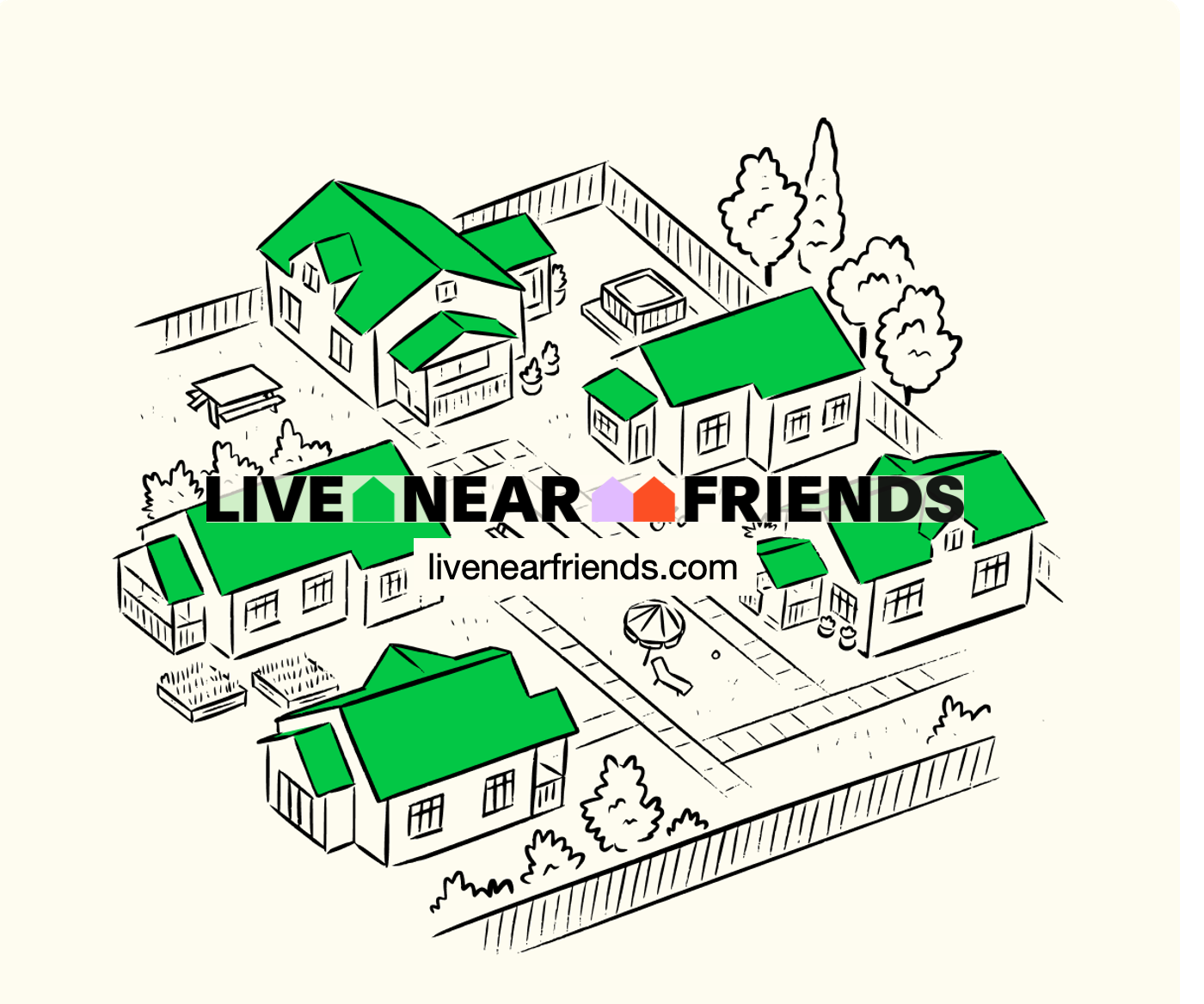It’s now much easier to build a friend compound in California.
I used to tell people that their “all my friends on a plot of land” dream was impossible in California. Getting permits would be too much of a nightmare. This is no longer true.
Here’s a breakdown of the two brand-new laws that makes it easier to build compounds with 4-10 homes, sometimes called Missing Middle Housing.
SB 684 - Starter homes on micro-lots
This is a formula for people owning their own starter homes on their own small lots right next to to each other.

And to show you how much I believe in this one, my wife Kristen and I just purchased a property in Alameda to build our own future family compound using SB 684.
I’ll likely go into more detail in a future post, but the basic idea is this:
- Step 1: Buy a home with a large lot
- Step 2: Subdivide it into smaller lots (up to 10!)
- Step 3: Sell the new lots to friends
- Step 4: Friends build their own homes

Why this is so powerful is that people can get their own individual loans and sell/exit their own homes. No more tricky co-ownership arrangements with multiple people on a loan.
And it means that one “sponsor” (in this case Kristen and I) can get something going without having to fund the capital for a whole big project. To get this going, we had to buy 1 home, not 6 of them.
The law puts a shot clock on how long cities have to review applications. They need to get you comments back within 60 days (so no stalling on your permit for multiple years, as was common before). It also requires that they approve your proposal as long as it meets a well-defined set of guidelines, including size of units, setbacks, and resulting lot size.
There are a few limitations you should be aware of: First, SB 684 only applies to parcels zoned multifamily (more on this below). Second, you generally need to maximize the allowable density on the parcel. So if the parcel allows for 5 units without SB 684, you will need to build at least 5 units. Third, the average square footage of a home can not be larger than 1750 sq ft, but this is plenty for 3 or even 4 bedrooms.
There is a lot of fine print on this one and we'd be happy to connect you to experts who can help sort through it for a particular project.
There is also a “clean up bill” coming in 2025 which will further liberalize these restrictions, including allowing projects on vacant single-family parcels (not just multifamily).
SB 1211 - ADUs to the MAX

Existing law typically allowed people to build 1-2 ADUs on a property in California. It meant turning a home into 2 or max 3 homes.
SB 1211 is for ADU maximalists.
With this law you can now build an equal number of ADUs to existing units. So a duplex can get 2 ADUs, a triplex can get 3 new ADUs and a quadplex can get 4 new ADUs. Up to 8 ADUs! And you can do this on parking spaces without replacing them.

Real estate developers use this law to densify existing properties in cities like Oakland, Berkeley, and Mill Valley. They replace parking areas with housing. And ADUs don’t have to be standalone. You can stack multiples on top of each other or next to each other like townhomes.
What to look for in a property
The elements that make properties a good candidate for these laws is a) large lot size (look for min 5000 and likely greater than 7000 sq ft) and b) multifamily zoning.
Multifamily-zoned parcels are more abundant in the East Bay and San Francisco than the North Bay and Peninsula. But you can find opportunities throughout the Bay.
Here are zoning maps of San Francisco, Oakland, Alameda, San Rafael, and Berkeley to give you a feel. Much of the "flats" of Oakland and Berkeley for example are zoned for multifamily housing.

